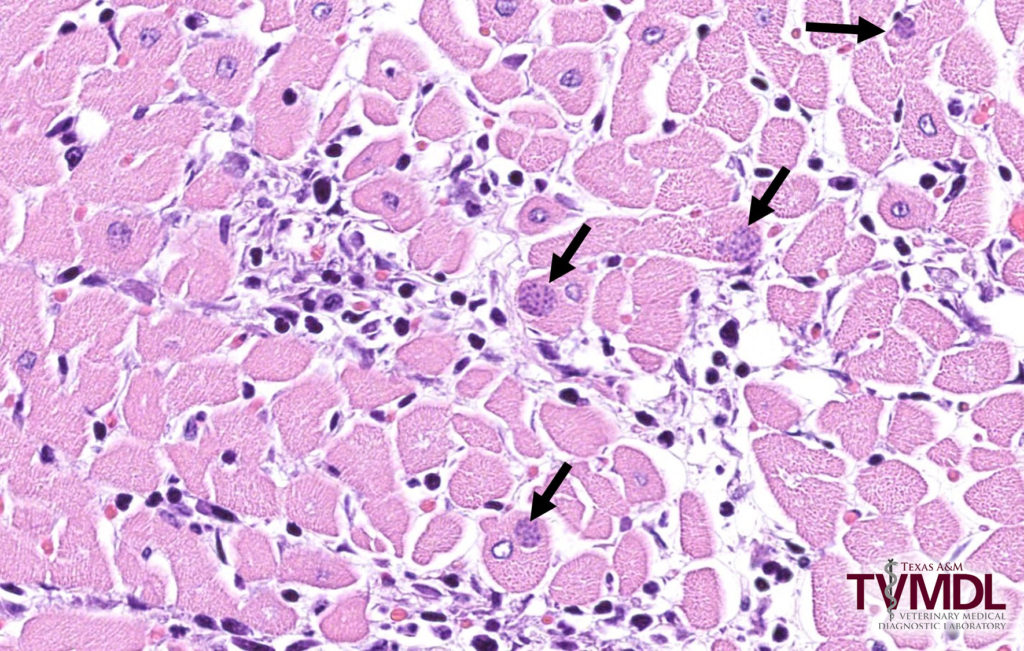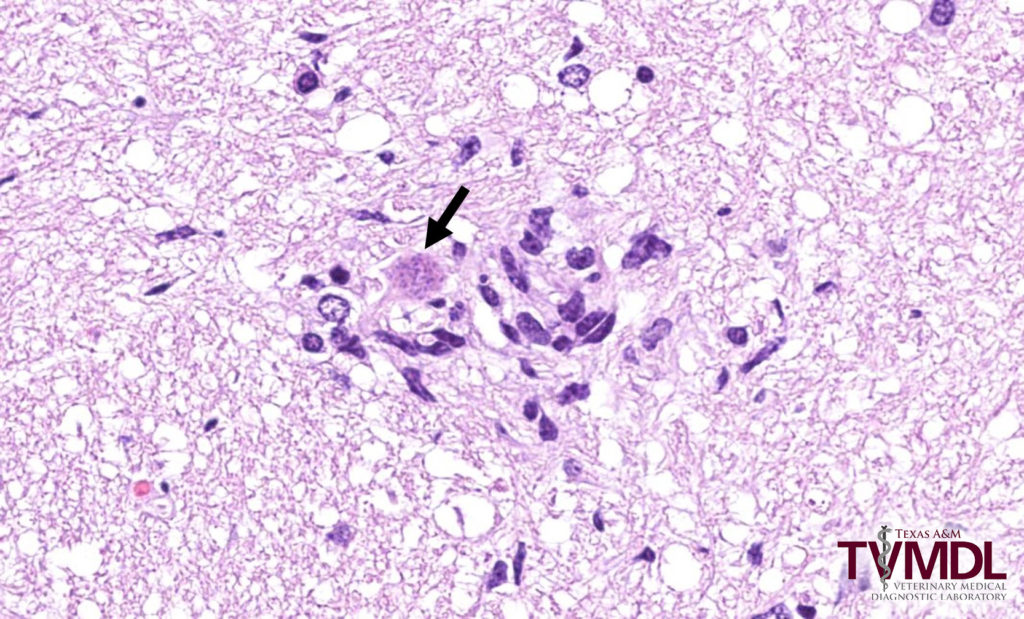Toxoplasmosis in a Herd of Kangaroos
By Erin Edwards, DVM, MS, DACVP, Gabriel Gomez, DVM, PhD, DACVP, and Jay Hoffman, DVM, PhD, DACVP
Four kangaroos from the same small herd were submitted to the Texas A&M Veterinary Medical Diagnostic Laboratory (TVMDL) in College Station for necropsy and were diagnosed with toxoplasmosis. Most of these kangaroos were found dead without exhibiting any prior signs of illness. One was reported to have labored breathing shortly before death. At necropsy, three of the kangaroos had a pneumonia characterized by diffuse, purple to red mottling and failure of the lung tissue to collapse. Formalin-fixed tissue samples from some kangaroos were submitted for histopathology. Histopathology confirmed the pneumonia and also revealed multifocal, mild inflammation in the heart and brain. Upon closer examination, scattered protozoal organisms consistent with Toxoplasma gondii were found, most commonly in the heart and rarely in the brain and lung. T. gondii PCR was performed on the heart and brain from one kangaroo and was positive.
This toxoplasmosis outbreak had a high mortality rate and left few survivors in the herd. Kangaroos and wallabies are highly susceptible to systemic toxoplasmosis and outbreaks can be devastating. In these species, infected animals often have sudden death though they may show neurological or respiratory signs before death. Some cases may have no necropsy lesions while others may have a characteristic pneumonia as seen in some of these kangaroos. Organisms are often found on histopathology, though they may be hard to find. Kangaroos are infected with toxoplasmosis following exposure to contaminated feline feces. Cats are the definitive host for T. gondii and will shed large amounts of this parasite in the environment. Though not always practical, limiting access of cats to kangaroo pens is important for disease prevention.

